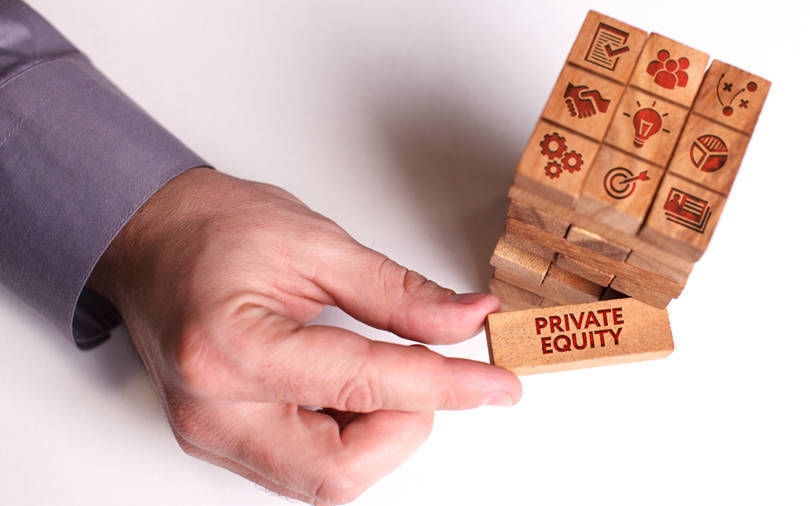 |
|
Private equity investment is ramping up in healthcare, education, and consumer-driven industries all across Vietnam
|
Last month, private equity fund Excelsior Capital announced its first investment in health and beauty retail chain Hasaki with a plan to close another 2-3 deals in 2021. Chinh Hoang, managing partner at Excelsior Capital Vietnam Partners told VIR that the fund expects a pick-up in private equity (PE) activity this year, although the slower pace of vaccination rollout will prevent the market from achieving its pre-pandemic levels.
Some sectors currently attracting PE investment include healthcare, education, consumer-driven industries, and logistics, to name a few.
He noted that most businesses have suffered impairment or delays in financial performance due to the pandemic, which fundamentally impacts current valuations. Success in the development of online applications has, for some companies, prevented or mitigated value decline.
“We now work with entrepreneur owners to address deal and valuation challenges through value-added cooperation and creative deal structuring, both of which enable mutually beneficial solutions,” he added.
In July, Vietnam-based PE firm Mekong Capital announced that Mekong Enterprise Fund IV (MEF IV) has completed an investment into consumer healthcare product company LiveSpo Global and cosmetic retailer HSV Group. In the beginning of June, Mekong Capital poured $10 million into Mutosi Group, a manufacturer and distributor of water purifiers and electrical appliances. In March, the fund also made its first investment with an undisclosed amount in Marou Chocolate. The investment was made via MEF IV, the firm’s largest fund with $246 million in committed capital.
In May, Baring PE Asia (BPEA) and Alibaba also led a $400 million investment for a 5.5 per cent stake in Masan’s The Crown X, making it the largest PE deal in the first half of 2021. BPEA is one of the largest private alternative investment firms in Asia with assets under management of $23 billion.
Elsewhere, global investment firm KKR has invested in EQuest Education Group. ABC World Asia, the Singapore-based private equity fund, also led a $24 million Series B round in Kim Dental.
Amidst the turbulence and uncertainty of the pandemic, Vietnam’s PE market continued to achieve a new peak in terms of number of deals in 2020, with a total of 59 deals worth $1.14 billion, according to a report by Grant Thornton.
Huong Trinh, managing director and head of Ho Chi Minh City at BDA Partners, pointed out some notable trends on the PE landscape since the pandemic. Lessening competition from regional PEs that have more added value and can afford higher valuation as they cannot come into Vietnam and perform on-site due diligence, resulting in a very good position for domestic PEs to acquire the companies that they wished to acquire before, at a lower valuation. These domestic PEs are focused on nurturing the businesses from an early stage, Trinh said.
She added that there is a reduction in deal count for venture capital type of deals, buthealthy deal flow for PE linked to dislocation, with local firms able to act more quickly for companies needing liquidity (that is, increase in willingness to conduct deals with lower valuation to finance growth capital).
Last year, Vietnamese brokerage SSI Securities Inc. joined forces with Thailand’s C.P. Group and the Development Bank of Japan to kick off a $150 million PE fund named Vietnam Growth Investment Fund (VGIF) to invest in Vietnam. VGIF is a member fund which invests in private companies with an estimated size of $150 million, a 10-year term, and a 5-year investment period.
Meanwhile, the portfolio of VinaCapital Vietnam Opportunity Fund has reached $1.32 trillion, of which listed stocks and unlisted stocks account for 72.2 and 8.2 per cent, respectively. PE investment makes up for 15.3 per cent of the portfolio with about $202 million.
In addition, PE investors also focus on tech-enabled businesses to avoid any disruptions in the future. Chinh Hoang from Excelsior Capital said, “As disposable income increases, additional funds will be disproportionately allocated to certain sectors of the economy, which is a key area for us. The application of new technology will be critical for future success in any industry, whether traditional or new. We will not invest in any company that does not seek to deploy cutting-edge technology in its field or industry."
On the same note, Trinh from BDA Partners said that internet-related businesses have been growing rapidly during COVID-19. Online or online-to-offline products and services have seen significant growth which is not just a short-term effect but consumer behaviour will be changing and sustaining to a certain level in the long term.
With regards to consumer goods, people are still spending money on shopping, a good sign given the fears that demand would fall during the pandemic, but sub-sector interests have changed. The best performer was groceries and fresh food, followed by household supplies, homecare, and healthcare products. These sub-sectors have therefore drawn good interests from PEs during COVID-19.
Trinh is upbeat about the outlook of PE investment in Vietnam, with the vaccination process eventually leading to a wave of unlocking deals that have been postponed.
“Closings for ongoing deals will happen faster as people can meet face-to-face and implement physical due diligence processes,” she said. “We have seen strong interest from large regional PEs looking for sizable transactions. Logistics, retail, healthcare, education, and industrials are the sectors with sufficient scale for large cap PE to invest more than $100 million.”
Source: VIR